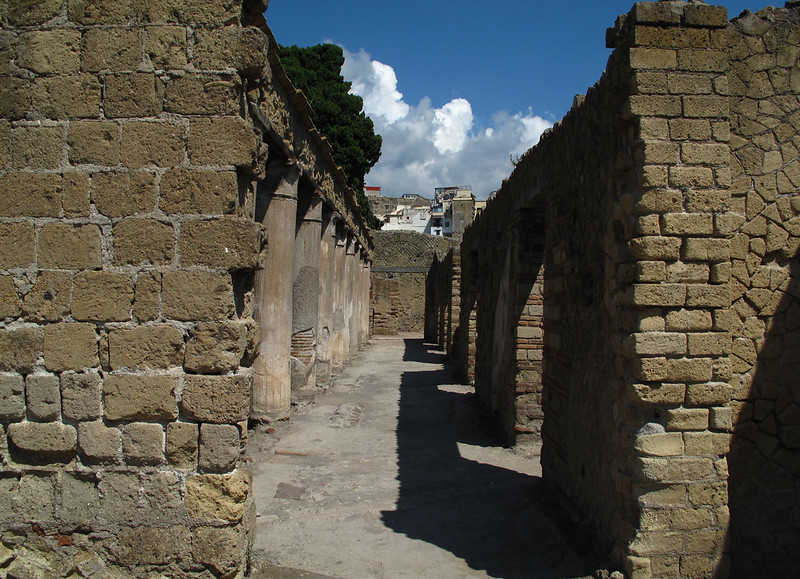Author: J. Hollendonner
Editors: S. Woien, C. Kays
6 min read…
“You’ll find no one willing to distribute his money; but to how many people each of us shares out his life!” – Seneca (On the Shortness of Life)
At the end of a day or even at the end of an era, we ask ourselves “How did I get here?”. We are tired, overwhelmed, and spaced out. When was the last time we did something out of our routine or took ourselves out to dinner? The enigma lies in the essence of what we silently agree to and habitually fall into nearly every day. When was the last time we told someone, “No”? We are not alone in this experience. However, it seems to be an inevitable human cycle we get caught in and somehow don’t realize it until it’s too late.
As Seneca reminds us: our time is valuable. Our time is perhaps more valuable than anything else we possess in this earthly realm. More valuable than our homes, our cars, our careers even. Time is the one thing we can never get more of, ever..If we think about how we spend our time in any given week, would we shift our perspective if we were oft reminded that we could never get it back? It is likely that Seneca could not know how much time we would waste on our cell phones every day. How much time do we spend arguing with loved ones or not speaking to someone we are angry with? What if we knew they would be gone tomorrow? Would we think differently or change our tune? The kicker is that this includes our own life too. Would we be able to forgive ourselves if we gave away all our time to those who didn’t appreciate it? We would likely make changes to the way we spend our time and forgive the ones we love a little bit more quickly. We might make room for things that are more fulfilling. ? We might start doing the things that we say we really want to do, but simply don’t have the time. But , where can we make space? How can we stretch time? We can’t. But we can start with saying ‘no’.
Owning Our Boundaries
“The plight of all preoccupied people is wretched, most wretched is the plight of those who labor under preoccupations that are not even their own, whose sleep schedule is regulated by somebody else’s, who walk at somebody else’s pace” – Seneca (On the Shortness of Life)
For many of us, saying “No” isn’t as simple as a two-letter word. It means shattering values and beliefs we’ve held on to for years if not decades. It means that we have to let go of the people pleasing that has kept us safe from being disliked and has served us so well for so many years. We have to take responsibility for our own life and our own boundaries. We have to let go of the fear of the unknown. What will be left if we start to say no to the things of which we longer wish to be a part? This is no small step and as such shouldn’t be approached that way. What helps is to think of it from a different perspective. For some, the anger and resentments stemming from always saying yes can be put to work here. We can use them to our benefit. If we are finally at our boiling point, it may make saying no for the first time sting a little less.

Once we say “No”, we can begin to see how our life opens up. The opportunities are endless. We no longer have to remain fearful of what others will think or if the world will fall apart without our participation. We can sit back and begin to watch our time free up. We can relish the moments we will get to spend not only with our loved ones but with ourselves. We can begin to know ourselves. To take that trip we have always wanted to take. To read the novels we’ve yearned to read for years. We can allow ourselves to be the person who says no sometimes and watch as the rest of the world continues on. Then we will see how investing in our own time pays off. We may think, why didn’t we do this sooner?
Releasing the Martyr
“He who saw that the world depended on him and him alone, who determined the fortunes of individuals and nations, he was happiest in looking forward to the day on which he would lay aside his greatness” – Seneca (On the Shortness of Life)
There are some, too, who rely heavily on playing the role of the Martyr. We may cry “But they rely on me” or “Who else will take care of them, if not I?”. Well, if we are to change, we have to let this go. We have to understand that sometimes by controlling the roles of others and always showing up when beckoned might really mean that we are doing more harm than good. And if we can see past this and say no, we may be left with feelings of guilt or shame. This is normal. This is to be expected, but it is not to be feared. For what good things in life tend to come easy? Not many. We may have to work towards being the person who is reliable but has healthy boundaries. This is the place of contentment. This is where we want to be, and no one will clear the path for us. We must remember that we don’t owe anyone an explanation for why we aren’t available this Wednesday for the umpteenth time to pick up someone else’s kids from school because their yoga class runs late. We can say no and perhaps when we do it opens up possibilities for someone else to overcome a challenge, too. What we do know is that if we continue to say yes, nothing will change. So why not take that step and see what happens?
Challenge: If saying no comes easily, start saying it! If not, then change up one thing in your routine. Start small and know your limits. Say no in an email, then to a neighbor, and so on. Once you start to feel more comfortable, don’t forget to practice self-compassion.
Photo Credits: (Top to bottom) “Herculaneum” by Rutger van de Maar, “Sun Dial” by Adrian Scottow







Leave A Comment